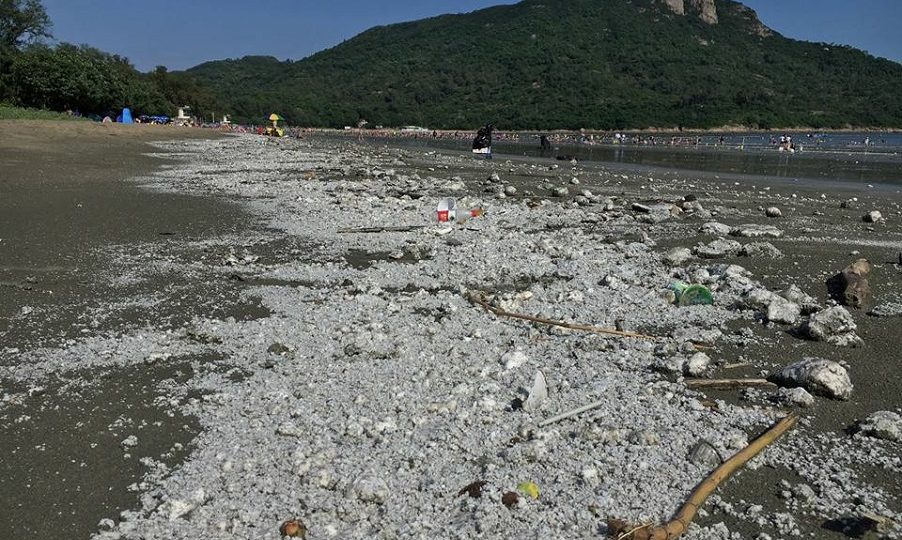Ten beaches typically packed on a hot weekend were closed in Hong Kong on Sunday due to a massive palm oil spillage from a ship collision in mainland Chinese waters.
Photographs showed styrofoam-like clumps lining the shores, while the waters at a fishing village popular with tourists were seen covered in oil and rubbish.
Hong Kong comprises more than 200 islands, many with popular beaches, but there are increasing concerns about pollution and rubbish blighting the city’s shores.
The government closed six beaches and hoisted warning flags after “white, oily substances” were spotted on the waters and sands off southern Hong Kong’s outlying islands on Sunday morning, according to a statement.
https://www.facebook.com/gary.stokes.161/posts/10155317640521999
Four additional beaches on the southern coast of the main Hong Kong Island were shut when beach staffers found “white, granular substances” on them, the statement added.
Despite the rise of debris on beaches, washed ashore from mainland China and other parts of Hong Kong, residents in areas affected by the spillage said they have never seen anything like the congealed oil lumps.
“It had a sort of bubbly consistency,” said a resident of Lamma Island quoted by the South China Morning Post, who added the substances were strewn along the high-tide line.
Others cited a rancid smell later in the afternoon, the paper reported.
The leakage was caused by the crash between two vessels near the Pearl River estuary in southern China on Thursday, the marine department confirmed.
While oil spills from ships are relatively common in Hong Kong, the edible palm oil may have hazardous effects once it has absorbed toxins in the ocean, Gary Stokes of Sea Shepherd Conservation Society told the South China Morning Post. Stokes wrote in a Facebook post that, as it breaks down, the oil will remove oxygen from the water “much the same way as [a] red tide” and is therefore highly hazardous to fish and other marine creatures.
Hong Kong fishermen told Apple Daily they’d heard that the spill was caused by a cargo ship which leaked over 9,000 tons of palm oil in Hong Kong’s waters.




